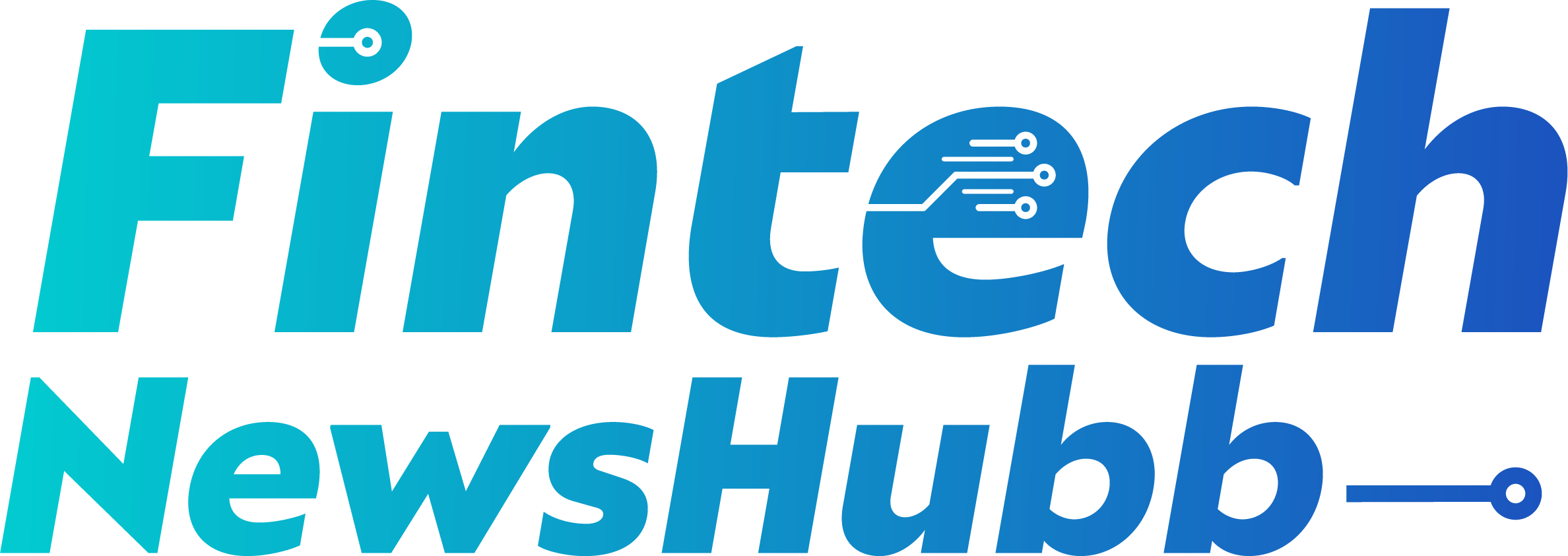-
Fintech Startups & Investments
The Future of Cross-Border Payments After Real-Time Rails
For decades, cross-border payments have been defined by friction slow settlement, high fees, opaque ...
February 18, 2026
-
Fintech Startups & Investments
Embedded Finance in 2026: Who’s Winning and Why
Introduction: Embedded Finance Moves From Experiment to Expectation Just a few years ago, embedded f...
February 4, 2026
-
Digital Banking & Payments
Is Traditional Banking Still Relevant in 2026?
Opening: A Question the Industry Can No Longer Ignore For more than a century, traditional banks hav...
January 29, 2026
-
Fintech Startups & Investments
New Financial Regulations Shaping FinTech Growth in 2026
Introduction: Regulation Moves to Center Stage For much of the last decade, FinTech thrived by movin...
January 22, 2026
Digital Banking & Payments

Is Traditional Banking Still Relevant in 2026?
Opening: A Question the Industry Can No Longer Ignore For more than a century, traditional banks have been the backbone

The Evolution of Digital Payments: What’s Next After UPI & Wallets
Introduction: Payments Have Entered a New Phase Over the past decade, digital payments have fundamentally reshaped how people move money.
Is Traditional Banking Dying? – Expert Perspectives
A Question Echoing Across the Financial World Walk into a bank branch today, and you may notice something missing not

When the Job Boards Fire Their Own: The Dark Irony of AI-Driven Layoffs
In a twist that feels almost dystopian, two of the world’s most trusted job platforms—Glassdoor and Indeed—have laid off over

The Evolution of Contactless Payments: Beyond Cards to Wearables and Implants
Investigating the Advancements in Contactless Payment Technologies and Their Adoption in Various Forms The way we pay has always been
Cryptocurrencies & Blockchain

Trump’s Travel Ban on Crypto-Rich Nations: A New Fault Line in Global Finance
When Crypto Wealth Becomes a Passport Problem In a world increasingly shaped by digital assets, President Donald Trump’s sweeping travel

The Impact of Stablecoins on Global Financial Stability
Stability in the World of Digital Finance The financial world has undergone a revolutionary shift, with cryptocurrencies emerging as a

The Rise of Decentralized Finance (DeFi) Platforms: Opportunities and Risks
The Dawn of Decentralized Finance: Revolutionizing Financial Services In the intricate tapestry of global finance, a profound shift is quietly

The Role of Venture Capital in Scaling Fintech Innovations Introduction
In the ever-evolving financial technology landscape, fintech startups are rewriting the rules of innovation. However, to achieve rapid growth and

Revolutionizing Fintech: Top AI-Powered Startups Transforming Investments in 2025
The financial industry is undergoing a rapid transformation, fueled by artificial intelligence (AI) and innovative fintech startups. As digital banking,
Fintech Startups & Investments

The Future of Cross-Border Payments After Real-Time Rails
For decades, cross-border payments have been defined by friction slow settlement, high fees, opaque exchange rates, and complex correspondent banking chains. Sending money internationally often meant waiting days, paying layered fees, and navigating limited transparency.
But the rise of real-time payment rails is reshaping expectations. Domestic instant payment systems from the U.S. and Europe to Asia-Pacific have proven that money can move in seconds. Now the big question is: What happens when real-time infrastructure meets cross-border finance?
The answer is transforming global payments at structural, technological, and regulatory levels.
The Real-Time Revolution: Raising the Bar
Over the past few years, real-time payment networks have expanded rapidly across major economies. These systems allow individuals and businesses to transfer funds instantly, 24/7, with immediate confirmation.
The impact domestically has been profound:
- Improved cash flow for small businesses
- Faster payroll and gig worker payouts
- Enhanced customer experience
- Reduced reliance on card networks for certain transactions
This has fundamentally changed user expectations. If domestic transfers settle in seconds, why should international payments take days?
The End of Correspondent Banking as We Knew It
Traditional cross-border payments rely heavily on correspondent banking networks. Multiple intermediary banks process a transaction before it reaches its destination. Each step adds time, cost, and potential risk.
Real-time rails are forcing a redesign.
Emerging models include:
- Direct interlinking of national instant payment systems
- Regional payment corridors with harmonized standards
- Multi-currency settlement platforms
- Blockchain-based settlement layers
Instead of routing through long chains of intermediaries, payment providers are building more direct, interoperable pathways.
Interoperability Becomes the Core Challenge
Real-time domestic systems were not originally built to talk to each other. Different countries operate on different:
- Messaging standards
- Compliance frameworks
- Currency controls
- Operating rules
The future of cross-border payments depends on solving interoperability at scale.
Financial institutions and regulators are increasingly aligning around:
- ISO 20022 messaging standards
- Common compliance frameworks
- Shared fraud monitoring protocols
- Bilateral and multilateral payment agreements
The goal is not just speed, but seamless integration.
FinTechs Are Driving Innovation
While traditional banks are modernizing infrastructure, fintech firms have often moved faster.
Digital-first providers are leveraging:
- Real-time domestic rails as on/off ramps
- Local currency accounts in multiple jurisdictions
- AI-powered FX optimization
- Pre-funded liquidity pools
This approach reduces reliance on correspondent networks and improves transparency around fees and exchange rates.
For consumers and SMEs, this means:
- Near-instant international transfers
- Lower and more predictable costs
- Clearer visibility into settlement timing
Fintech competition is pushing incumbents to accelerate their own upgrades.
Stablecoins and Digital Assets Enter the Conversation
No discussion about cross-border payments is complete without mentioning digital assets.
Stablecoins cryptocurrencies pegged to fiat currencies are increasingly being explored as cross-border settlement tools. They offer:
- 24/7 transfer capability
- Near-instant settlement
- Reduced intermediary dependence
While regulatory clarity remains a work in progress in many jurisdictions, financial institutions are experimenting with tokenized deposits and central bank digital currencies (CBDCs) to enable faster international settlement.
The long-term outcome may not be a single dominant model, but a hybrid ecosystem where traditional rails, real-time systems, and blockchain-based solutions coexist.
Compliance and Risk: Speed Without Compromise
Speed cannot come at the expense of compliance.
Cross-border payments must adhere to:
- Anti-money laundering (AML) rules
- Know-your-customer (KYC) requirements
- Sanctions screening
- Fraud detection standards
Real-time systems introduce new risk dynamics. Transactions that settle in seconds leave little room for manual review.
To address this, financial institutions are investing heavily in:
- AI-driven fraud detection
- Real-time transaction monitoring
- Behavioral risk analytics
- Automated compliance workflows
The future of cross-border payments will depend as much on intelligent risk management as on technical speed.
Liquidity and FX: The Hidden Complexity
Cross-border payments are not just about moving money they’re about converting it.
Foreign exchange remains one of the most complex components of international transfers. Real-time rails require real-time liquidity. Providers must ensure sufficient currency balances across jurisdictions to enable instant settlement.
Innovations emerging in this area include:
- Dynamic FX pricing models
- Just-in-time liquidity management
- Automated treasury optimization tools
Institutions that master liquidity management will gain a competitive edge in the real-time era.
What This Means for Banks and Financial Institutions
The post-real-time landscape presents both opportunity and risk.
Banks that modernize:
- Can expand global reach without expanding physical footprint
- Improve SME and corporate client offerings
- Capture new remittance and B2B flows
Banks that delay:
- Risk losing market share to agile fintech players
- Face higher operational costs
- Struggle to meet rising customer expectations
Strategic partnerships—between banks, fintechs, and infrastructure providers—are becoming central to staying competitive.
The Corporate and SME Impact
For businesses, especially SMEs, faster cross-border payments mean:
- Improved working capital management
- Faster supplier payments
- Reduced FX uncertainty
- More predictable cash flow
In global trade, speed is a competitive advantage. Real-time cross-border payments can unlock efficiencies across supply chains, especially in emerging markets where traditional banking infrastructure may be limited.
The Road Ahead
The future of cross-border payments will not be defined by a single technology. Instead, it will be shaped by convergence:
- Real-time domestic rails linked internationally
- Digital currencies integrated into settlement systems
- AI managing compliance and liquidity in real time
- Standardized global messaging frameworks
The shift underway is structural, not incremental.
Cross-border payments are moving from slow, opaque, and fragmented to fast, transparent, and interoperable. While challenges remain particularly around regulation and global coordination the direction is clear.
Final Thoughts
Real-time rails have reset expectations for how money should move. In doing so, they have exposed the inefficiencies of traditional cross-border systems.
The next generation of global payments will prioritize:
- Speed
- Transparency
- Interoperability
- Intelligent risk management
For financial institutions, fintech innovators, and regulators alike, the opportunity is significant but so is the urgency. In a world where domestic transfers happen in seconds, the future of cross-border payments cannot afford to move at yesterday’s pace.
Regulatory & Compliance News

Regulatory Changes in FinTech: Key Regions to Watch
2025 marked a turning point in how financial technology is governed globally. As digital finance expands spanning payments, digital assets, cross-border services, and AI-driven tools

Regulation Whiplash: How Fintechs Are Surviving the World’s Toughest Compliance Era
From chaos to clarity: why compliance-first fintechs will own the next decade. When the Rules Change Mid-Flight Imagine you’re piloting a fast-growing fintech. One month,


